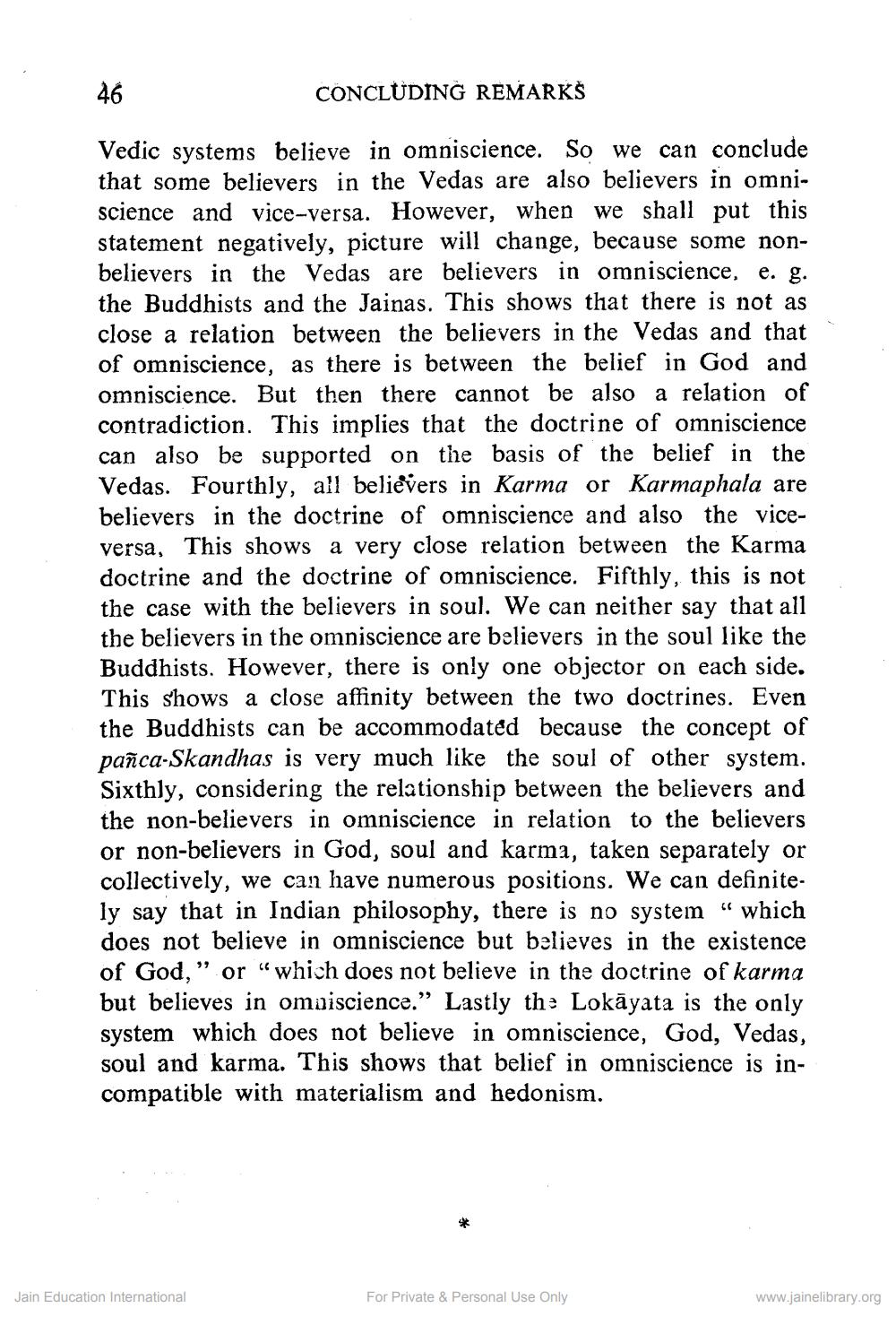________________
46
CONCLUDING REMARKS
Vedic systems believe in omniscience. So we can conclude that some believers in the Vedas are also believers in omniscience and vice-versa. However, when we shall put this statement negatively, picture will change, because some nonbelievers in the Vedas are believers in omniscience, e. g. the Buddhists and the Jainas. This shows that there is not as close a relation between the believers in the Vedas and that of omniscience, as there is between the belief in God and omniscience. But then there cannot be also a relation of contradiction. This implies that the doctrine of omniscience can also be supported on the basis of the belief in the Vedas. Fourthly, all believers in Karma or Karmaphala are believers in the doctrine of omniscience and also the viceversa, This shows a very close relation between the Karma doctrine and the doctrine of omniscience. Fifthly, this is not the case with the believers in soul. We can neither say that all the believers in the omniscience are believers in the soul like the Buddhists. However, there is only one objector on each side. This shows a close affinity between the two doctrines. Even the Buddhists can be accommodated because the concept of pañca-Skandhas is very much like the soul of other system. Sixthly, considering the relationship between the believers and the non-believers in omniscience in relation to the believers or non-believers in God, soul and karma, taken separately or collectively, we can have numerous positions. We can definitely say that in Indian philosophy, there is no system "which does not believe in omniscience but believes in the existence of God," or "which does not believe in the doctrine of karma but believes in omniscience." Lastly the Lokayata is the only system which does not believe in omniscience, God, Vedas, soul and karma. This shows that belief in omniscience is incompatible with materialism and hedonism.
Jain Education International
*
For Private & Personal Use Only
www.jainelibrary.org




